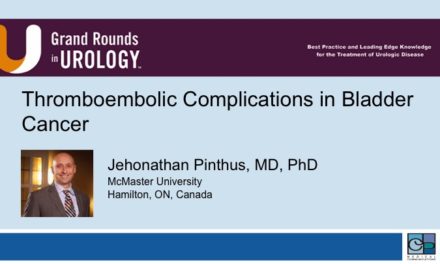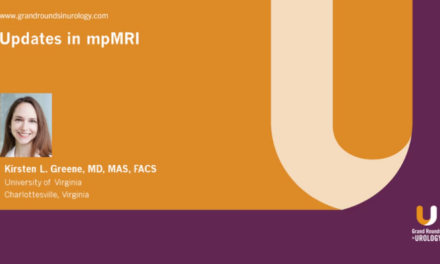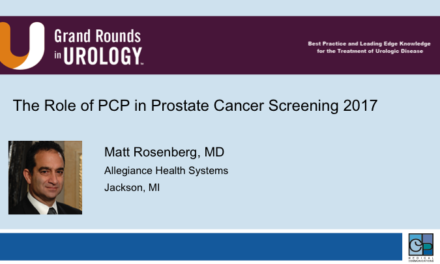Sia Daneshmand, MD, University of Southern California, Los Angeles, CA, gives an overview of hematuria and some of the new urinary molecular marker tests in bladder cancer.
Keywords: hematuria, molecular marker tests, bladder cancer
ABOUT THE AUTHOR
Siamak Daneshmand, MD, is Professor of Urology and Medicine (Oncology) with Clinical Scholar designation and serves as Director of Urologic Oncology, as well as the Urologic Oncology (SUO) Fellowship Director at the University of Southern California (USC) in Los Angeles. His main clinical interests include bladder cancer, testicular cancer, and advanced kidney cancer. He is a leading authority in the management of complex germ cell tumors and nerve-sparing retroperitoneal lymph node dissection (RPLND) following chemotherapy for advanced testicular cancer and is one of the highest volume surgeons for this disease in the country. His main research interests focus on the use of pathways to improve perioperative outcomes following radical cystectomy and post-chemo RPLND, use of serum and molecular markers and new technologies in diagnosis and management of bladder and testicular cancers, as well as functional outcomes following orthotopic urinary diversion. He serves on the American Urological Association (AUA) guidelines panel for non-muscle invasive bladder cancer, as well as the AUA guidelines panel for testicular cancer. He currently serves as the chair of bladder section of the Society of Urologic Oncology Clinical Trials Consortium (SUO-CTC), is on the scientific steering committee of several bladder cancer clinical trials, and has led over a dozen clinical trials in bladder cancer and a pivotal trial in testicular cancer (SEMS). He is currently secretary of the Western Section of the AUA. He is a member of Alpha Omega Alpha medical honor society and has been designated one of the “America’s Top Cancer Doctors” for the past 12 consecutive years. He has been a career leader in academic investigations in bladder cancer and germ cell tumors and was recently appointed as the chair of the SWOG Cancer Research Network local bladder committee. He has been a visiting professor at more than 25 institutions around the world. He has presented over 500 abstracts at scientific meetings and has authored over 375 peer-reviewed articles, reviews, and book chapters.
Dr. Daneshmand earned his medical degree at the University of California, Davis, and completed his residency at the University of Southern California, followed by a two-year fellowship in Urologic Oncology at the University of Southern California’s Norris Comprehensive Cancer Center.




